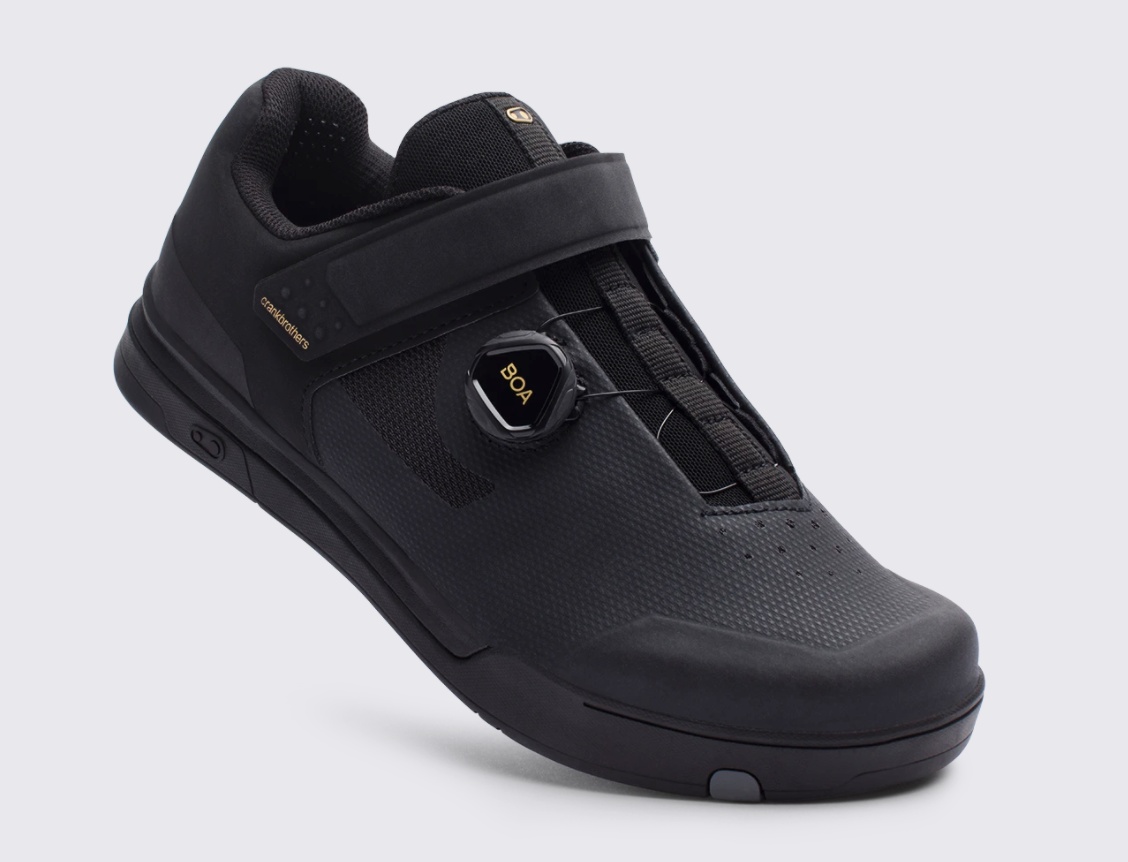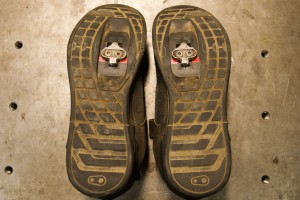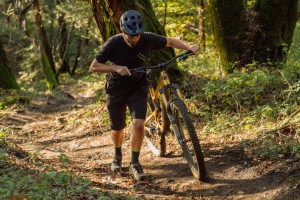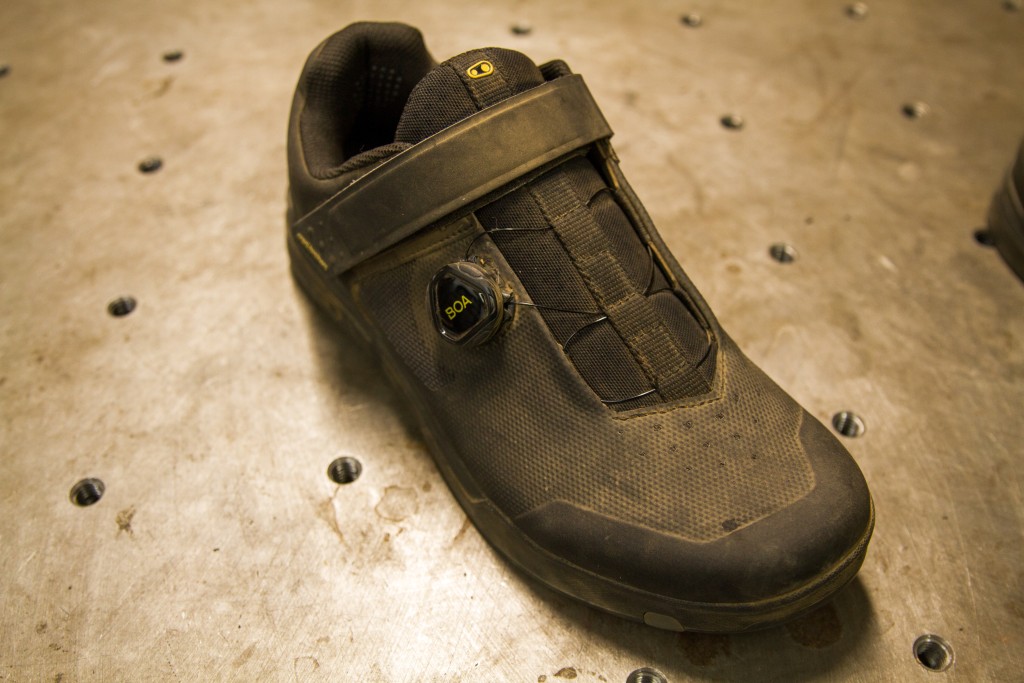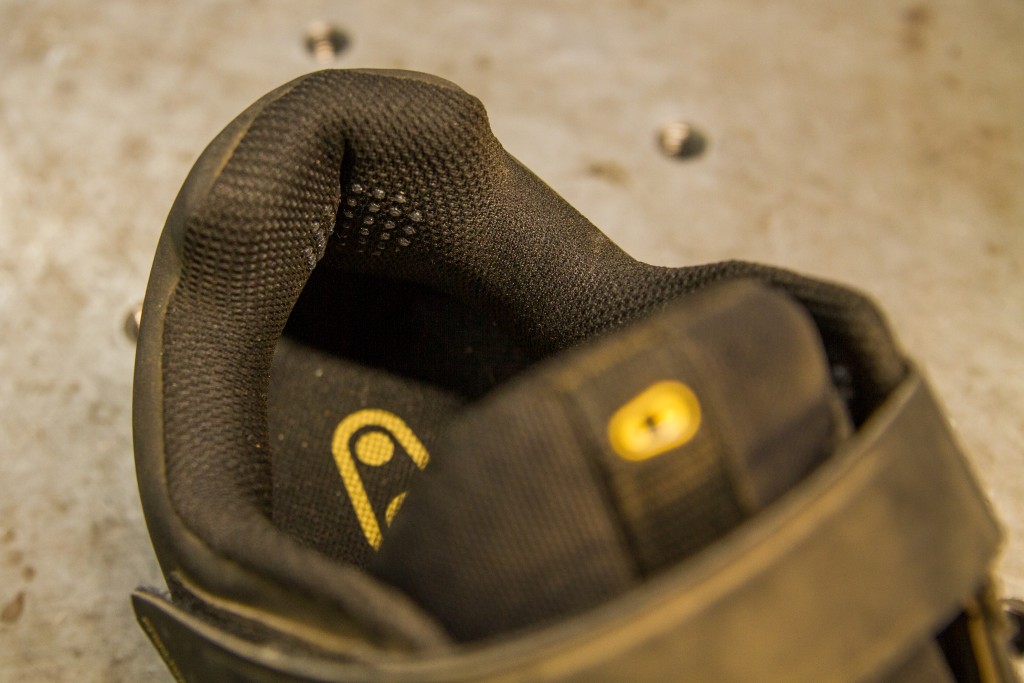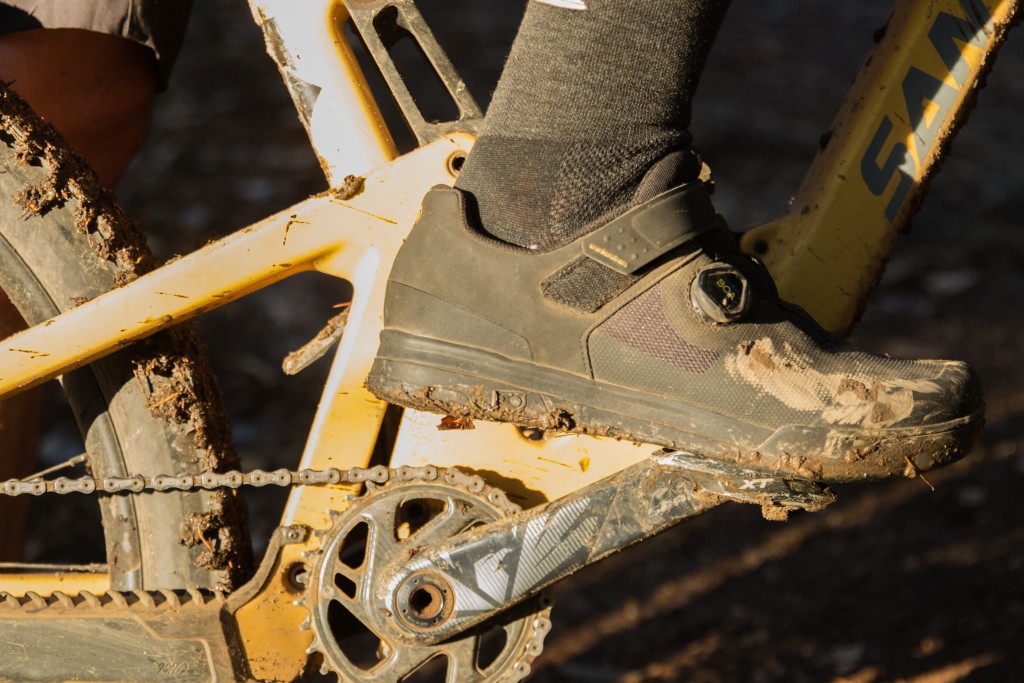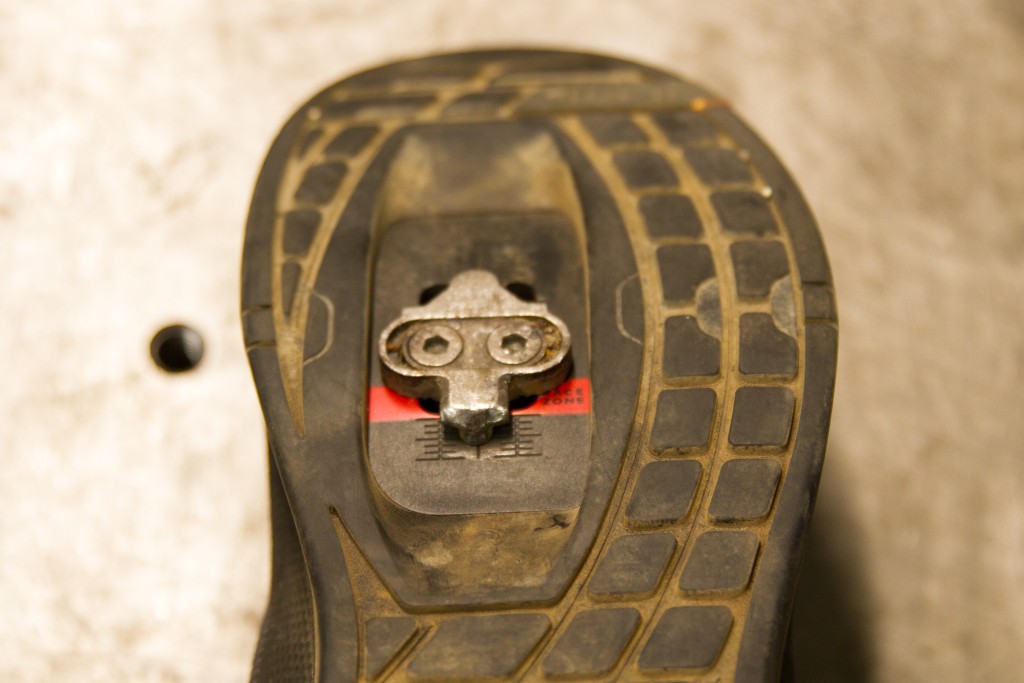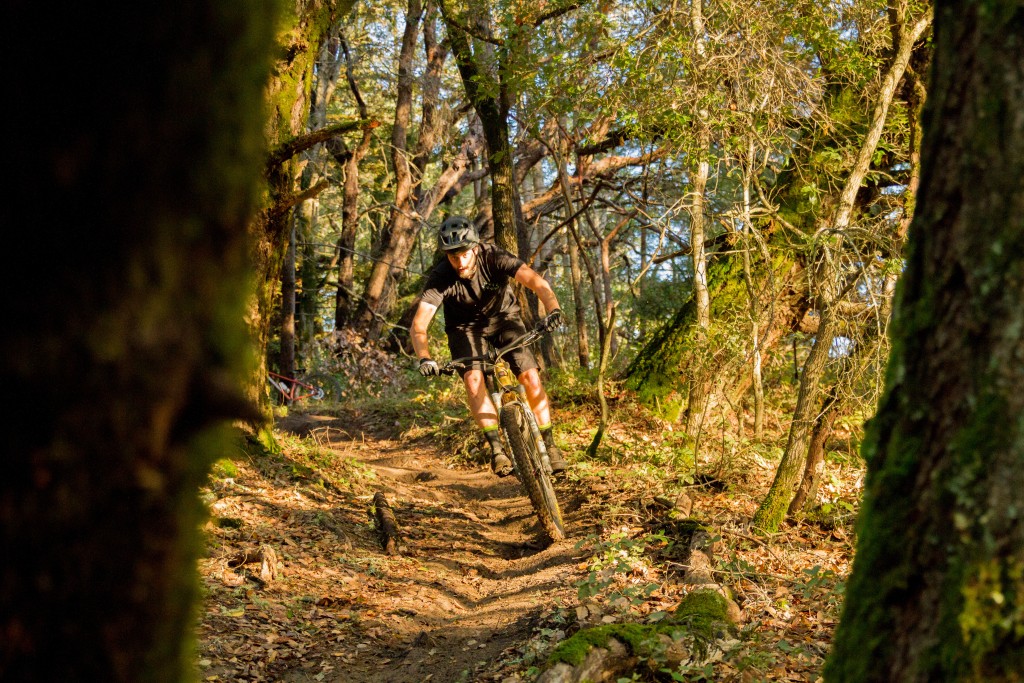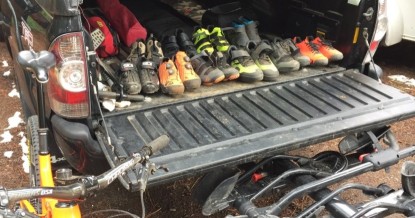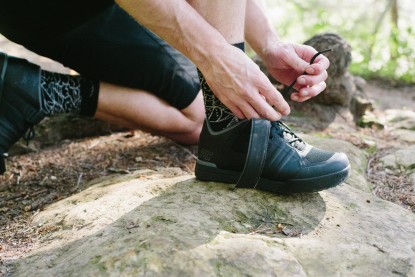CrankBrothers Mallet Boa Review
Our Verdict
Compare to Similar Products
 This Product
CrankBrothers Mallet Boa | |||||
|---|---|---|---|---|---|
| Awards | Best Overall Trail Riding Shoe | Best Bang for the Buck Cross Country Shoe | Best Bang for Your Buck All-Mountain/Trail Shoe | Best on a Tight Budget | |
| Price | $144.35 at Amazon Compare at 2 sellers | $220 List $220.00 at Amazon | $170 List | $130 List Check Price at Backcountry | $62.97 at Amazon Compare at 2 sellers |
Overall Score  |
|||||
| Star Rating | |||||
| Bottom Line | This shoe strikes a great balance between performance, comfort, and style and is a great option for many types of riding | A unique design and a great blend of on and off-the-bike performance make this a versatile trail and all-mountain shoe | An XC/trail riding shoe that combines high performance with affordability | Lightweight with good power transfer and walkability, these are a reasonably priced trail riding shoe with casual styling | These shoes offer a good blend of on and off-the-bike performance for casual trail riding or bikepacking |
| Rating Categories | CrankBrothers Malle... | Shimano ME7 | Scott MTB Team Boa | Specialized 2FO Roo... | Giro Gauge |
| Comfort (25%) | |||||
| Traction and Walkability (25%) | |||||
| Power Transfer (20%) | |||||
| Weight (15%) | |||||
| Durability (15%) | |||||
| Specs | CrankBrothers Malle... | Shimano ME7 | Scott MTB Team Boa | Specialized 2FO Roo... | Giro Gauge |
| Closure | Boa dial, plus Velcro strap | Speed lacing system with cover and ratchting upper bucckle | Boa iP-1 dial, plus velcro strap | Laces | Laces |
| Measured Weight (per shoe) | 454 grams | 415 grams | 359 grams | 375 grams | 452 grams |
| Size Tested | 11 | 44 | 44 | 43.5 | 45 |
| Width Options | Regular | Regular and Wide | Regular | Regular | Regular |
| Upper Material | Synthetic | Synthetic Leather | Synthetic Polyurethane, 3D Airmesh | Synthetic Leather and Textile | Synchwire on-piece composite |
| Footbed | Not specified | Shimano Pedaling Dynamics insole | ErgoLogic | Specialized Body Geometry | Die-cut EVA |
| Midsole | EVA midsole | Carbon Fiber composite "TORBAL" midsole | Nylon/Glass Fiber Composite | Stiff Lollipop nylon composite plate | Injected nylon shank |
| Outsole | Match MC1 | Michelin OCX3 dual-density | StickiRubber | SlipNot FG | Rubber outsole |
Our Analysis and Test Results
Crankbrothers markets the Mallet Boa as a downhill/enduro shoe, but throughout our testing process, we learned that we liked these kicks for a lot more than just our gravity rides. The Boa and velcro strap closure system make these shoes super quick to put on for an after-work trail or cross-country ride. The sole is just stiff enough to provide solid pedaling performance while the breathable-but-protective upper keeps your feet cool and safe from rock strikes. They come with Crankbrothers cleats pre-installed, but they'll work with any kind of clip-in mountain bike pedal. We tested ours with SPD cleats and loved them.
Performance Comparison
Comfort
When our lead tester first put on the Mallet Boa's he had serious concerns about how they would perform on the trail because they were almost too comfortable. When you're used to stiff-soled, firm-uppered performance shoes that can feel like boards strapped to your feet, a comfortable all-mountain shoe can take a bit of getting used to. When we finally got these shoes out on the trails our concerns about performance disappeared, but the comfort stuck around.
The Mallet Boa's construction and fit both play a large role in its comfort. It has a similar build to a skate shoe, with heavy padding around the ankle, tongue, and heel. The upper is firm but pliable enough to conform to the shape of your foot, and a mesh window on either side of the foot helps keep things relatively cool. The combination of the Boa closure and the velcro strap makes for a secure fit that's easy to tweak. Crankbrothers also included some grippy rubber dots in the heel padding that hold on to your sock and help to keep your heel locked in. The fit is fairly neutral and should suit most foot widths without issue. Our only gripe is that the Mallet seems to run slightly longer than most shoes of the same size. We had a little bit of extra space in the toe box, but it didn't pose any issues. If your feet tend to sit between sizes it might make sense to size down for these shoes.
These shoes really shine when things get rough out on the trails. The extra padding and the mid-stiffness sole help to mute some of the harshest trail feedback and keep your calf muscles from fatiguing. Initially, we worried that the extra padding in the tongue made the fit feel vague and removed too much trail feedback, but a few extra clicks of tension on the Boa helped to lock our feet in and the problem disappeared. This model was one of our favorite clipless shoes when it came time to point it downhill.
Traction and Walkability
Any good all-mountain shoe should perform both on and off the bike. Almost every mountain bike ride inevitably includes some hiking—either to traverse an unrideable obstacle or to session a particularly fun section of trail. We certainly spent some time hiking in the Mallet Boa and they performed as well as we could have asked for. The sole's stiff pedaling platform and flexible rear half allow for a remarkably natural gait. They're not exactly hiking shoes, but they're at least as good as your average sneaker. On steep uphills, the soles don't cause calf fatigue, and the cleats are recessed enough in the cleat box that they only contact the ground heavily on uneven terrain.
The Mallet Boa outsole doesn't have the largest or most aggressive lugs, but it provides a surprising amount of traction. We tested these shoes on some very steep terrain in both wet and dusty conditions and they held their own. The designers at Crankbrothers cleverly angled the tread at the toe and heel to help aid traction when walking up and down steep hills, and it seems to work well. It was only in the greasiest conditions that we ever felt a lack of traction. We wouldn't necessarily want to take these shoes out on our next backpacking trip, but for a quick run back up the trail to session a jump they do the job admirably.
Power Transfer
The Mallet Boa is by no means a slouch when it comes time to lay down the power, but sole stiffness is arguably this shoe's weakest point. Like any good enduro or downhill shoe, the Mallet packs some considerable padding and cushion in both the sole and the upper, and when you really stand on the pedals that cushion can feel like it's sucking up a little bit of your power before it has a chance to get to the pedals. Additionally, we found that the forward half of the sole is super stiff, while the rear half is a bit flexy. This definitely contributes to walkability and comfort while descending, but it also led to a slight feeling of the rear half of the shoe folding over the pedal in high-torque situations. For normal pedaling, we didn't have any issues with the sole's stiffness. It was only on short, sharp pitches where you really have to stand on the pedals that we felt a bit of flex.
Crankbrothers has dubbed the Mallet Boa's stiff cleat mounting area the Matchbox. It's one of the wider cleat boxes among shoes we tested, which helps with mud clearance and allows ample space to adjust your stance width by moving the cleats to the left and right. The Matchbox also allows a huge range of fore and aft cleat adjustability. Gravity-oriented riders will likely want to slam the cleats all the way back into the red Race Zone while riders who are looking to balance pedaling with descending will want to opt for a more neutral position. We found that the further rearward we had our cleats mounted, the more we could feel the back half of the shoe flexing in high-torque pedaling scenarios.
We tested our pair of Mallet Boas with a set of XT trail pedals, and we found that the two played nicely together. The wide cleat box made clipping in and out quick and easy, and we found that the sole interfaced nicely with the pedal's platform to provide a little bit of extra lateral stability.
The Mallet Boa's power transfer is roughly comparable to other shoes in their category, and we aren't overly concerned that they aren't the stiffest gravity shoes on the market. During testing we took our test pair out on plenty of long XC rides packed with climbing and we never experienced foot fatigue or discomfort from too much sole flex. If you're looking to maximize your pedaling performance and set PRs on the climbs these might not be the shoes for you, but otherwise, they do just fine. We liked them most for their versatility and comfort, as an over-stiff sole can easily hinder performance in other areas.
Weight
Our size eleven test shoes tipped the scales at a very-competitive 454-grams per shoe without cleats installed. The lightest cross-country shoes we tested came in right around 380 grams, so for a protective gravity-oriented model, the Mallet Boa are reasonably light. When compared to shoes geared towards a similar purpose they're on the lighter end of the spectrum, which makes these very appealing for far more than just downhill and enduro riding.
Durability
Despite their relatively low weight, the Mallet Boa are heavy-duty shoes that are built to last. We put some considerable miles on our test pair over the course of a month, and they came out the other side remarkably well despite some muddy days and a couple of close encounters with trailside rocks.
Crankbrothers doesn't provide a ton of info on the materials that make up the Mallet Boa, but we can say with confidence that they are high-quality. The upper is abrasion-resistant and sleek with no areas that can easily snag on trailside obstacles. The toe box is reinforced by a thick rubber bumper that will protect both the shoe and your toes from rock strikes on the trail, and the Match compound rubber sole has a high enough durometer that it shouldn't wear out too quickly with extended hiking.
Our one real durability concern with these shoes is the possibility of a riding impact to the Boa dial. Like most shoes with a Boa closure system, the tension dial sits on the outside of the foot and sticks out about 10mm from the rest o the upper. It isn't common, but we've smashed Boa dials up against rocks on technical terrain and had them release, losing all of the tension across the top of the foot. Luckily, the dials are surprisingly hearty and we've never actually broken one, but the dials on some of our older shoes look like they've gone to war.
Value
The Mallet Boa certainly isn't an inexpensive shoe. In fact, they're one of the priciest gravity shoes that we tested. Despite the high price, we think they provide a lot of bang for your buck. They're protective and comfortable enough for gravity applications while lightweight, stiff, and breathable enough to double as a trail shoe or even casual cross country shoe. Riders looking for a single do-it-all shoe will find everything they need here, and we think that's enough to justify the slightly higher price. If you're looking for the best power transfer at the expense of walkability then these probably aren't the shoe for you.
Conclusion
Billed by Crankbrothers as a downhill/enduro shoe, the Mallet Boa proved to be a hugely versatile model in our test session. We wore these shoes for everything from burly enduro laps to gravel rides along the coast and didn't find a true weak point. We wouldn't want to wear them for our next cross country race, but I don't think we'll find any gravity-oriented shoe that would fit that mold.


